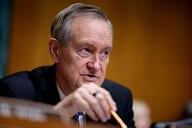You have /5 articles left.
Sign up for a free account or log in.
As the U.S. Supreme Court prepares to hear arguments in a case over whether public universities can require religious organizations (like other entities) to abide by nondiscrimination rules as a condition of recognition and funding, Cornell University has been having a similar debate. While some Cornell units are part of the State University of New York, the university as a whole is a private institution, and so has been able to consider the issue without being forced by courts to come down on one side or another. Currently, the university requires recognized groups to abide by nondiscrimination rules (including those covering sexual orientation) with regard to membership, but permits groups to discriminate on the basis of religious beliefs with regard to their leaders. The Student Assembly wants to end that exemption and has drafted policies that would do so. But David Skorton, Cornell's president, who has the final say, has issued a letter suggesting that the Student Assembly scale back its policy. Skorton backed the right to require complete nondiscrimination as a requirement for receiving student activity funds. But he said that religious groups should continue to be exempt from the requirement -- for their leaders only, not for their membership -- for other matters of university recognition (such as access to university facilities).
In his letter, Skorton noted that even if Cornell is not bound by court cases, they matter to the university. "Private corporations and universities -- and Cornell University is both -- are not compelled by law to recognize or extend constitutional rights to individuals or organizations. However, many private universities, including Cornell, typically have chosen to do so as a matter of policy," he wrote. "When considering the basis and boundaries of such rights, private universities typically look to clearly established constitutional law (as developed by the courts) for guidance. And when determining how such constitutionally recognized rights as freedoms of speech, press, association, and religion should inform and/or be incorporated into university policy documents, private universities (including Cornell) are cognizant, as they should be, of their own First Amendment right as a private university of academic autonomy to determine appropriate educational policy."
Skorton also noted that he viewed his position as one of compromise, involving competing rights, between the university's interest in barring bias and the religious groups' interest in adhering to their beliefs. He said that this approach does support the right of religious groups to make decisions (such as barring gay students from leadership positions) that he doesn't necessarily endorse. Such bans, he said, "may strike many of us as outdated, indeed offensive; but First Amendment principles protect even offensive speech and, within certain limits, recognize the right of private associations to tailor their membership and leadership practices."





